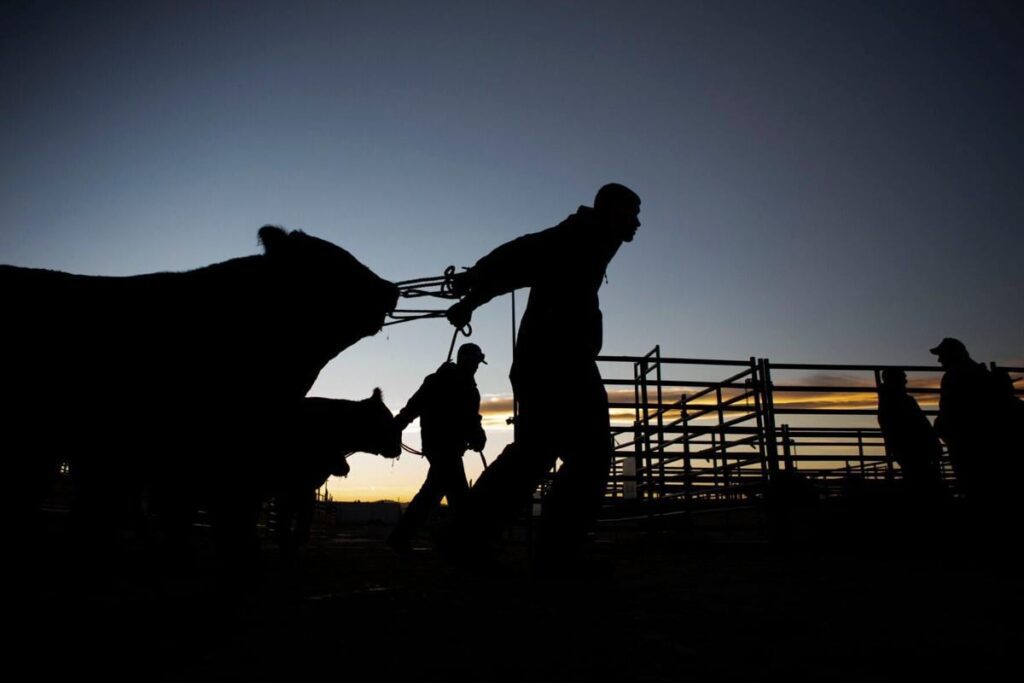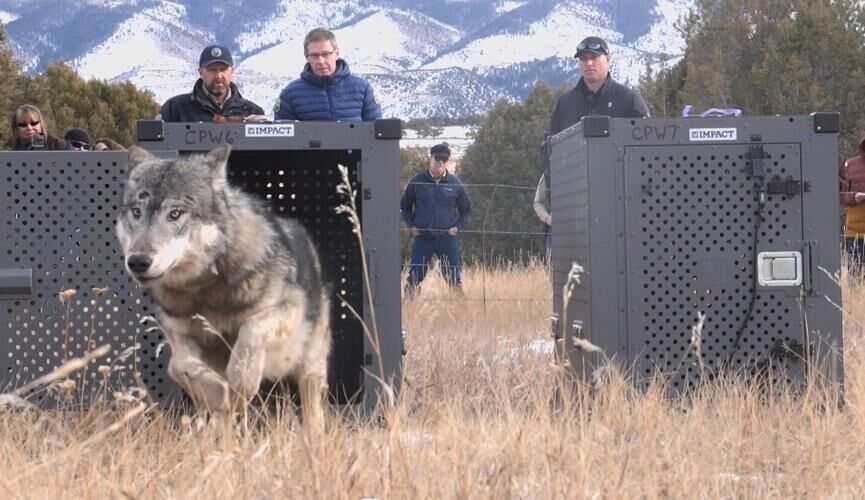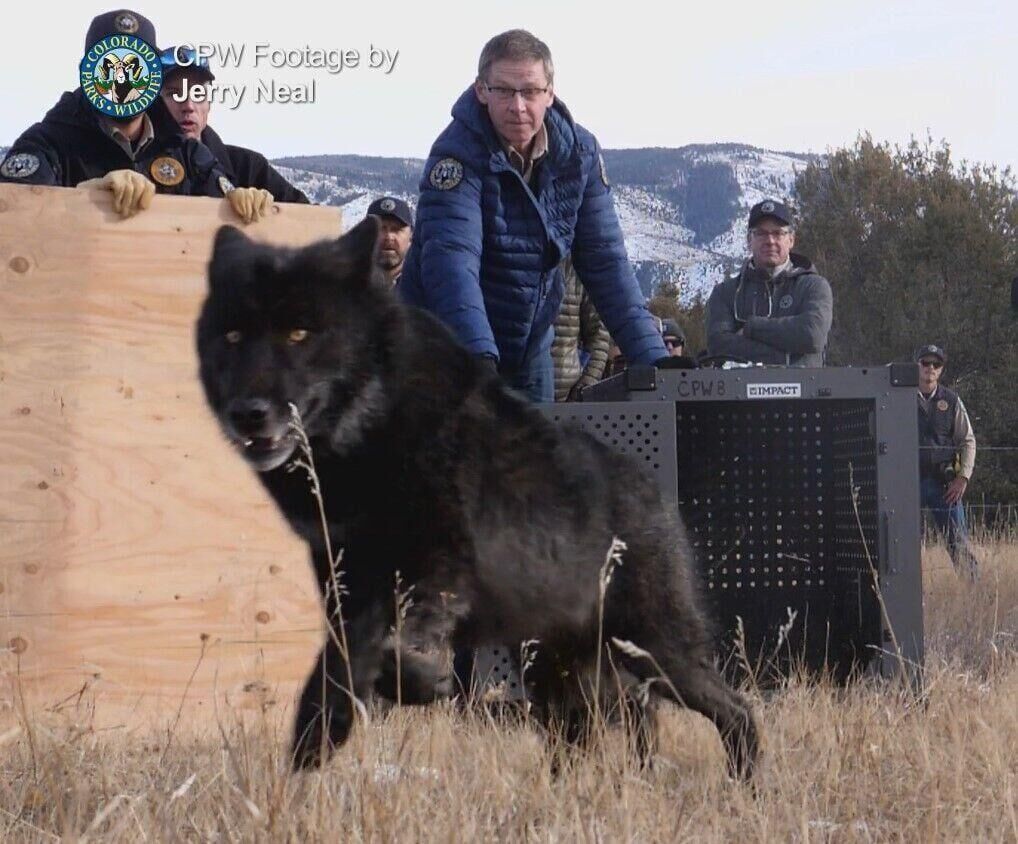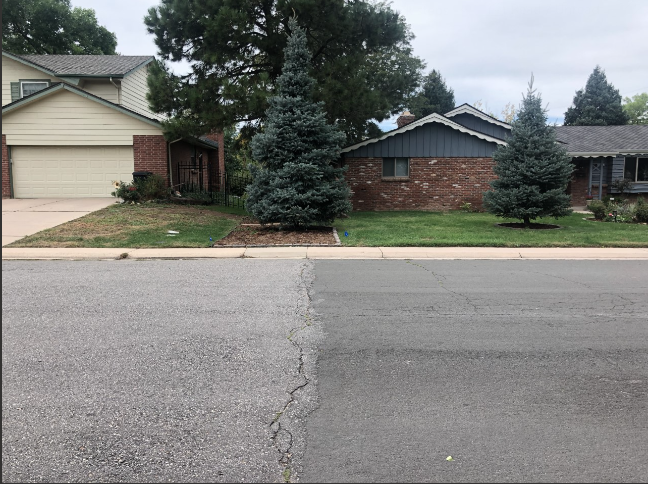Uncollared Wolf Believed Responsible for Livestock Deaths Shot by CPW
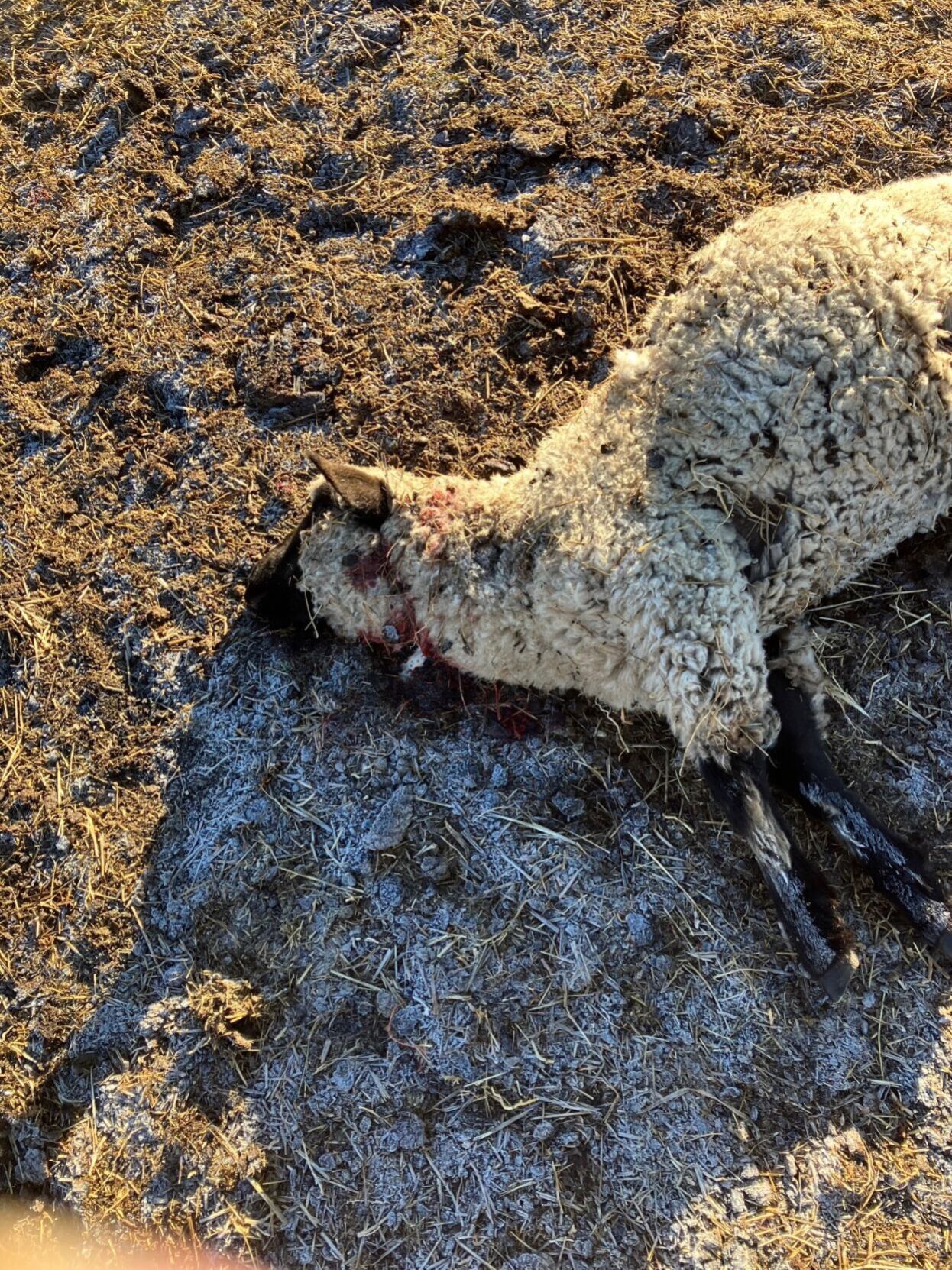
The summer Elk Fire that burned more than 14,000 acres, mainly in Rio Blanco County, was more than just a problem for firefighters and area residents.
It also hindered efforts by staff from Colorado Parks and Wildlife to kill an uncollared wolf that was believed to be responsible for at least three attacks on lambs and ewes in July and August.
The wolf, which is thought to be the fifth yearling from the Cooper Creek pack, was likely killed by CPW officials last week, according to a report.
The Cooper Creek pack has killed livestock everywhere it goes. After wolves were brought to Colorado from Oregon in Dec. 2023, two had paired up and produced five pups sometime in 2024.
The male of the Copper Creek pack came from a pack in Oregon with a history of killing livestock.
The mating pair is believed to be responsible for killing livestock in Grand and Routt counties throughout 2024.
The state wildlife agency rounded up four of the pups and the mating pair and put them in a sanctuary. The adult male died shortly after, likely from injuries from a gunshot wound.
The female and four remaining yearlings were released in Pitkin County in January, where just two months later, they started attacking and killing livestock on several ranches. The wildlife agency shot one of the yearlings.
The Rio Blanco wolf, according to the report, met the criteria for “lethal” management. There are four criteria the state uses to make that determination, including:
- Documented repeated depredation and harassment of a producers’ livestock or working dogs caused by the wolf, wolves or pack
- Use of a variety of non-lethal conflict minimization materials and techniques
- Likelihood that additional wolf-related depredation will continue if lethal control is or is not implemented
- Unintentional or intentional use of attractants that may be luring or baiting wolves to the location
The first criterion, regarding depredation, requires three or more events within a 30-day period.
The wolf in Rio Blanco County was believed responsible for killing five lambs and a ewe and injuring two other lambs.
The first occurred on July 20, when a dead lamb was found on a ranch outside of Meeker. There were no collared wolves in the area. There was evidence of an uncollared wolf, heard howling in the days before the first event, as well as photographs and videos taken by residents.
The same rancher lost another lamb to the wolf two days later, despite the presence of two range riders and other non-lethal management tools employed in the area. It was one of the range riders who discovered the carcass.
The third depredation — a dead ewe — was found on Aug. 2 on an adjacent property owned by the same rancher.
In its report, the state wildlife agency said it believes a single, uncollared wolf was responsible for all three depredation events.
Efforts to find the wolf were delayed because of the Elk Fire.
On Aug. 13, the report said CPW staff started trying to capture the wolf, an effort that went on for at least eight days.
On Aug. 16, CPW learned the wolf had killed another lamb and injured three others about 6.5 miles from the other attacks. CPW staff euthanized one of the injured lambs; another died the same day.
The investigation on the Aug. 16 attack yielded better information about the wolf, according to the report.
It gave CPW staff “a better understanding of the uncollared wolf’s location,” the report said.
CPW staff used thermal optics to locate the wolf and shot it once with a .25-06 rifle. But they were unable to find the wolf.
The wildlife officers continued to search for it on Aug. 17 and Aug. 18, finding evidence that the animal had been hit. They followed the trail until it was lost, but were able to collect blood samples and a bone fragment for genetic analysis.
Officials continued to search for the wolf until Aug. 21.
The DNA analysis showed the wolf’s genotype showed it was the offspring of 2309-OR (male) and 2312-OR (female), the breeding pair of the Copper Creek pack.
The wolf’s death marks the 11th wolf relocated to Colorado that has died. Ten wolves were brought from Oregon, and 15 from British Columbia. There were five pups born to the Copper Creek mating pair, according to CPW, and two-year-old wolves from that pack have now been killed because of livestock depredations.
At least three packs have been born to wolves in Colorado in 2025: the One Ear Pack in Jackson County, the King Mountain Pack in Routt County and the Three Creeks Pack in Rio Blanco County.
More than two dozen livestock have been killed by wolves in Colorado in 2025 in Jackson, Pitkin, Eagle, Rio Blanco, Routt and Gunnison counties.
The wolf relocation program has cost taxpayers more than $8 million in five years, more than double the amount projected when Proposition 114 was narrowly approved, primarily by Front Range voters, in 2020.
The costs to compensate ranchers have exceeded what’s available from the state wolf compensation fund. CPW paid out more than $600,000 in claims for wolf impacts in 2024, with some claims denied or reduced.
The state wolf compensation fund was set at $350,000 per year. CPW has used other funds, including its Species Conservation Trust Fund, the Colorado Nongame Conservation and Wildlife Restoration Cash Funds or other sources of funding for non-game species.
Last December, the Colorado Cattlemen’s Association asked CPW to keep the Copper Creek pack in the sanctuary. The state rejected that plea.
On July 5, the Holy Cross Cattlemen’s Association asked for a permit to take out the Copper Creek pack. CPW denied that permit, claiming that killing the yearling in May would change the pack’s behavior.
At least three more depredation events took place in Pitkin County in July and August. One of those attacks was attributed to the Copper Creek pack.
The state’s most recent wolf map shows wolves have entered the watersheds for Boulder, reaching the eastern part of the county, and Jefferson County.

Last month, during a special session of the Colorado General Assembly, lawmakers overwhelmingly approved a bill to block CPW from using taxpayer money to acquire more wolves. However, under a threat of a veto from Gov. Jared Polis, the bill was amended to allow CPW to use its cash funds, which could also include gifts and donations, for that purpose.





